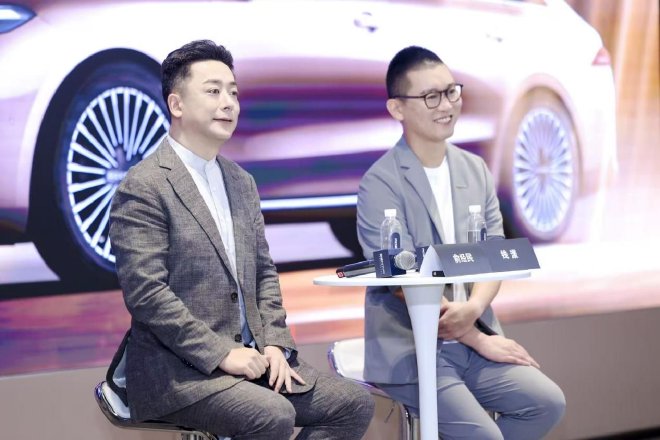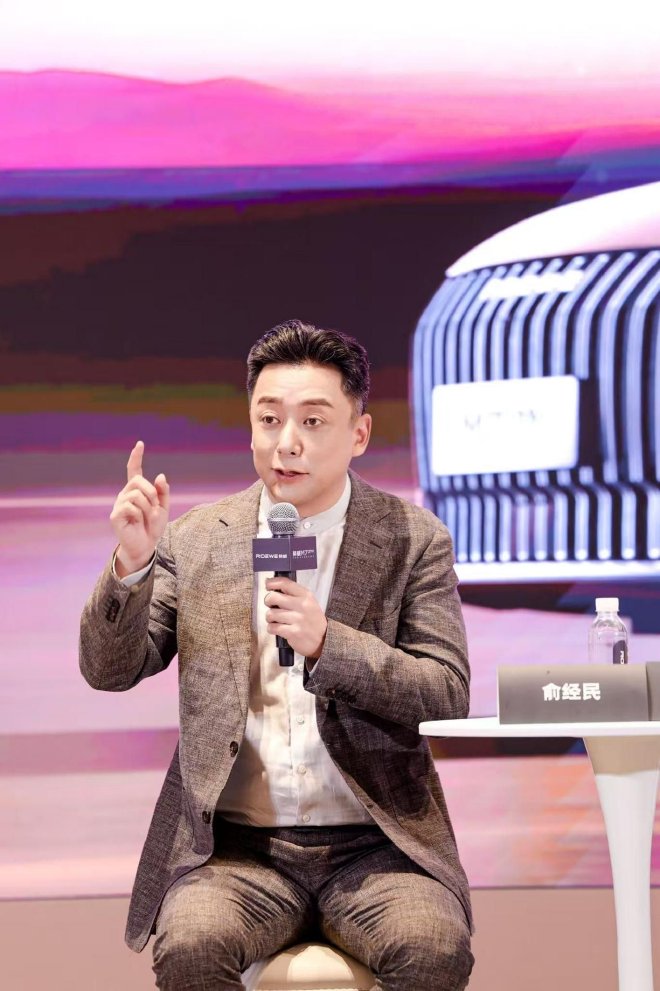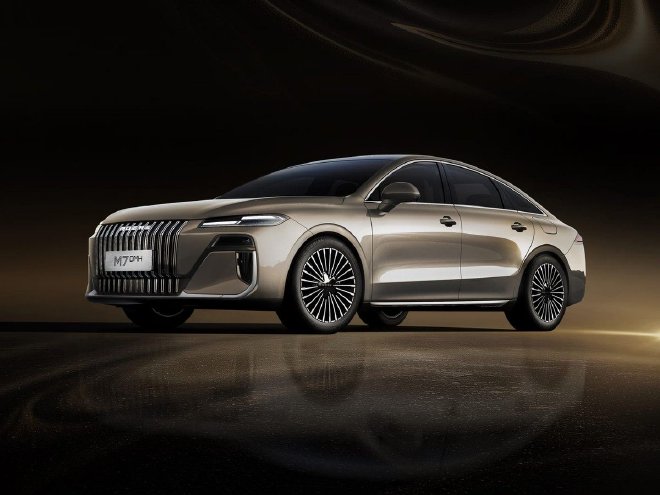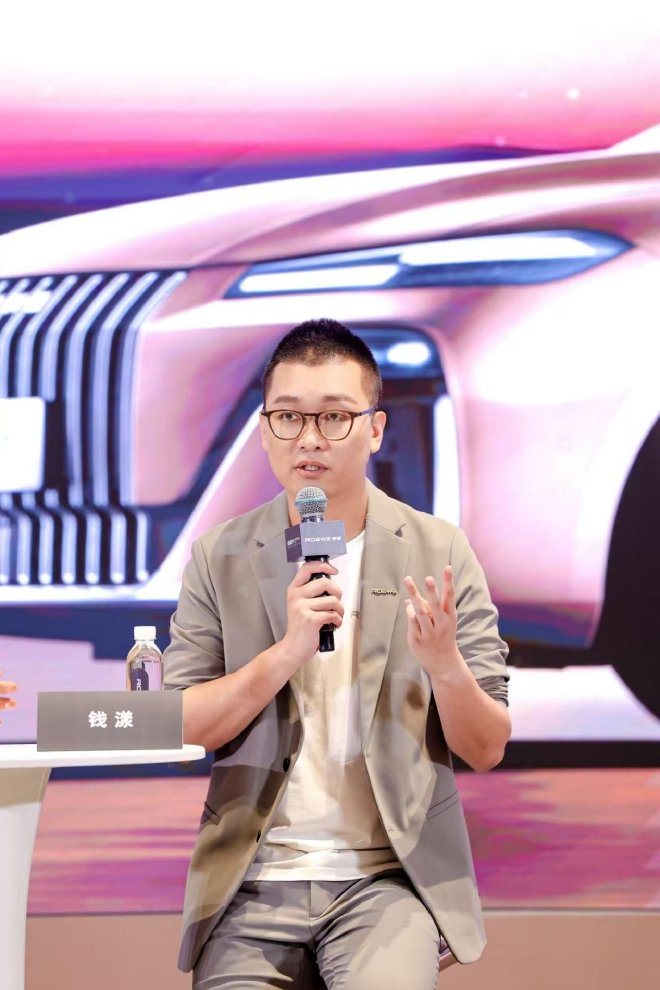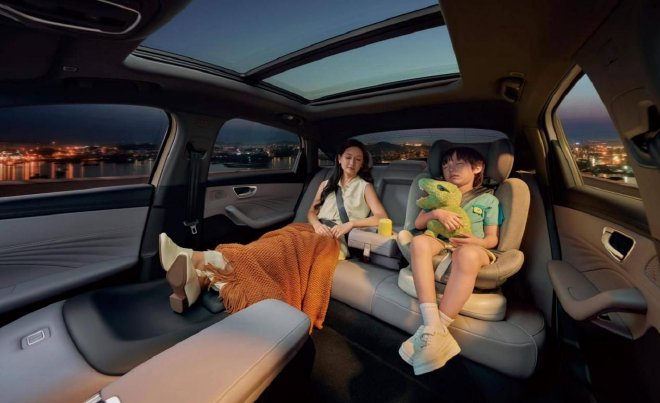Recently, during the launch of the Roewe M7 DMH, SAIC Passenger Vehicle’s Executive Vice President Yu Jingmin and Roewe Brand Division General Manager Qian Yang gave a media interview. The two executives discussed how to create popular new cars and their future plans.
Roewe launches at least one new car each quarter. It offers various powertrains, including fuel, hybrid, pure electric, and range-extended options. This strategy meets diverse customer needs. Roewe has quietly built a network of 150 new 4S stores. It refreshes both products and channels. Scale is key. Roewe does not want to be the “king of competition.” On the anniversary of Yu Jingmin’s return to SAIC Passenger Vehicles, he explains Roewe’s new positioning: “New大众” (New大众). As SAIC’s first independent brand, Roewe embraces the mission of “technology equality.” It aims to make luxury design, smart technology, and comfort affordable. The newly launched Roewe M7 DMH, starting at 85,800 yuan (12050$), embodies this concept. It achieves equality in aesthetics, luxury, and technology.
Yu Jingmin stated, “Today’s price is very reasonable. Next, we will see how the orders perform.” He noted that “the best dealers nationwide also feedback, ‘It’s spot on.’” His words reflect Roewe’s strong confidence in its product strength and pricing strategy. From a product perspective, the Roewe M7 DMH introduces several luxury features typically found in cars priced around 300,000 yuan (42140$) to the 100,000 yuan (14050$) family sedan market. For instance, the mCDC intelligent suspension system, usually reserved for high-end models, has been significantly cost-reduced through Roewe’s independent development, making it accessible at mainstream price points. Notably, AI technology has become the core label of Roewe’s new products. The brand has integrated the Doubao AI model, enabling even 100,000 yuan (14050$) models to achieve industry-leading intelligent interaction levels. During the discussion, Yu Jingmin also recalled Roewe’s connection with ByteDance dating back to 2015. He highlighted that AI will evolve from “command response” to “multimodal interaction,” even eliminating the need for wake words to provide personalized services tailored to each individual.
The new Roewe M7 DMH meets Chinese consumers’ expectations for a “national family sedan.” However, its nearly 5-meter length and starting price of under 90,000 yuan (12640$) raise concerns about profitability. Yu Jingmin addressed the pricing and profit issue. He stated that a strong product paired with the right price allows users and partners to feel at ease. He acknowledged that scale is crucial, but Roewe does not want to be a “price cutter.” Instead, it aims to enhance brand value through technology and user experience. He believes that once sales increase, costs will effectively decrease. “We must ensure our profitability and that of our dealers. A healthy channel system is essential for lasting brand success.” He views a healthy business ecosystem, sustainable R&D investment, and trust from users and partners as more important than short-term sales competition. Focusing on scenario innovation, the Roewe M7 DMH aims to address user pain points. In China’s fiercely competitive auto market, the M7 DMH launch signifies more than just a product release; it embodies a brand revitalization strategy. At the Chengdu Auto Show, Yu proposed a user-centric “hit product methodology.” This idea is now systematically implemented, forming the core path for Roewe’s brand renewal. Yu summarized Roewe’s product logic: “Beauty is 1, everything else is 0.” Design leads user perception as the critical “1.” True competitiveness comes from the solid “0s” that address real pain points. This mindset shapes product development and integrates deeply into Roewe’s overall strategy. As the first model to apply this methodology, the Roewe M7 DMH features a design by global master Carban. Its pearl paint and sleek coupe shape create a distinctive visual benchmark, securing the “1.” The additional “0s” systematically cater to genuine user needs: 160 km of ultra-long pure electric range, the new DMH 6.0 hybrid system, AI predictive chassis technology, and mousse pressure-relief seats—all aim to address specific pain points. Yu emphasized, “Each ‘0’ must be ‘unique, distinctive, and the best.’ We reject mere configuration stacking and advocate for true scenario innovation that solves user problems.”
How to achieve this? The key lies in the scene. Qian Yang mentioned, “We engaged with potential users face-to-face from the presale stage. We found that families need real driving experiences, not cold parameters. For example, can the elderly easily enter and exit the car? Can children move freely inside? These are the scenes we focus on.” To address family travel, the D7 DMH features front seats that lay flat and connect with the second row, creating a true mobile living room. For complex road conditions, the mCDC intelligent suspension and AI prediction technology work together to filter bumps and enhance comfort. These innovations stem from real user demands.
On the marketing front, Yu Jingmin openly acknowledges Roewe’s shortcomings. He admits they are learning from Huawei and Xiaomi about “launch events, online presence, and user response.” He introduced the “Golden Triangle” closed-loop theory. This theory emphasizes that product, marketing, and sales must work together. This shift marks Roewe’s transition from traditional product thinking to a true user-centered approach. Cross-functional team collaboration drives this change. Yu Jingmin stresses, “We need talent who understand both technology and the market. They must translate engineers’ language into consumer-perceived value.” This collaboration ensures consistency from R&D to promotion for the D7 DMH. It also paves the way for Roewe’s brand revival. Full-stack self-research breaks barriers. Quality confidence supports a lifetime warranty. When asked about the commitment to a “lifetime warranty on five major components,” SAIC Roewe cites two pillars: full-stack self-research technology control and SAIC’s quality culture. From a technological evolution perspective, the first generation EDU in 2013 had oil-electric hesitation issues. Now, DMH 6.0 achieves smooth collaboration. The core breakthrough lies in their commitment to full-stack self-research. Qian Yang states, “Our self-developed PICU and AI algorithms make engine intervention seamless, optimizing energy consumption.” On the quality front, Yu Jingmin elaborates on SAIC’s tradition of Quality Month: “Quality never reaches 100%, but we can keep adding nines after the decimal — from 99.9% to 99.99%. Each increase by one nine involves exponential investment.” SAIC Group invests over 3% of its sales in quality management each year. It has established a comprehensive quality control system that spans from supplier management to production and after-sales service. He cited the example of the Roewe M7 DMH. Its battery pack underwent 4 million kilometers of extreme testing. The motor achieved an IP68 waterproof rating. “These unseen aspects are our true source of confidence,” he said. He also mentioned several technical leaders: Wu Haiping as the project VOE, Qiu Jie as an academician at the Innovation Institute, and Shao Jingfeng leading the design team. They collectively built the “Great Beauty” technology core. Additionally, he highlighted Qiu Jie’s concept of “Beauty in Harmony.” This approach integrates self-developed chips, software, and system capabilities. It enables hardware-software iteration and even embeds OTA upgrade capabilities. This full-stack self-development ensures technological advancement and guarantees product reliability and durability. Qian Yang added, “We vertically integrate the supply chain and self-develop core components. This significantly reduces costs. For instance, the self-development rate of the electronic control system exceeds 80%. This is our confidence in setting this price.” In conclusion, just days after its launch, the Roewe M7 DMH generated a strong response in the consumer market due to its excellent product strength and competitive pricing. This car focuses on user needs and is built on technological strength, providing a model for the industry. Regardless of market changes, enabling users to enjoy high-quality products at lower costs remains the key to breaking through challenges. As Yu Jingmin said, “User satisfaction is the true greatness of Roewe.”
